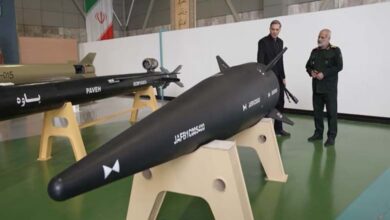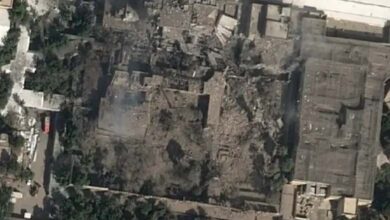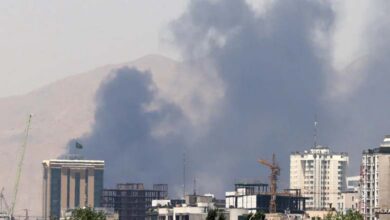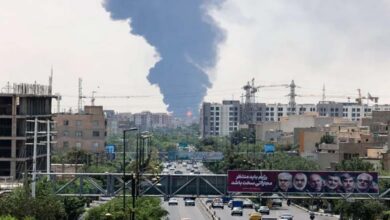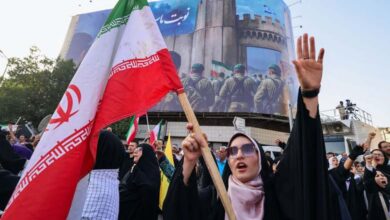Washington Imposes Sanctions on Network US Technology to Tehran
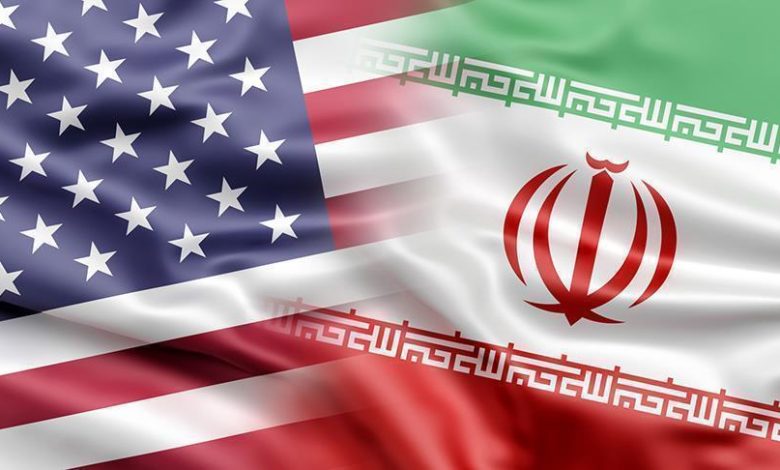
Sanctions are linked to a company providing IT services, the technological arm of the Iranian Central Bank
The US Treasury Department on Friday imposed sanctions on a network comprising companies and individuals for facilitating the transfer of US technology from dozens of institutions to Iranian entities, including the Central Bank of the Islamic Republic, amid escalating tensions in the Middle East linked to the aftermath of the Gaza war and the US administration’s push to exert further pressure on Iranian authorities through the sanctions card.
The sanctions are connected to the “IT Services Company,” the technological arm of the Iranian Central Bank, according to a statement from the Treasury Department.
The department also imposed sanctions on several institutions suspected of being affiliated with the IT Services Company and having subsidiaries in Turkey and the UAE, as well as three individuals suspected of being linked to them, including Borya Mirdamadi, who holds dual Iranian and French citizenship.
Brian Nelson, Assistant Secretary of the Treasury for Terrorist Financing and Financial Intelligence, said the Iranian Central Bank “played a key role” in providing financial support to the Lebanese Hezbollah and the Quds Force, the external arm of the Iranian Revolutionary Guard.
He said in a statement that “the United States continues to use all available means to thwart the Iranian regime’s illegal attempts to acquire sensitive American technology.”
Treasury Department sanctions mean freezing any US assets associated with the sanctioned individuals and entities, as well as banning Americans from dealing with them.
Washington continues to implement a policy of sanctions against Tehran, despite the Treasury Department’s confirmation last year that punitive measures had not led to significant changes in the actions or policies of the Iranian government, with continued support for factions and militias in several arenas such as Yemen, Syria, Iraq, and Lebanon, as well as continued evasion of nuclear obligations.
This week, the US urged Panama to withdraw its flag from Iranian oil tankers suspected of using vessels flying flags of Central American states to bypass US sanctions imposed on the Islamic Republic.
Washington seeks to choke off the flow of dollars to Tehran, having imposed sanctions on several banks used by the Revolutionary Guards and their affiliated groups to break the financial blockade imposed on the Iranian regime.
Tehran previously accused Washington of conspiring against Iraq and held it responsible for the crisis of the collapse of the Iraqi dinar last year compared to the rise in the dollar exchange rate in the Iraqi market, a crisis that triggered a wave of protests involving Shiite militias sympathetic to Tehran.
Last year, the US imposed sanctions on 39 entities, mostly based in Hong Kong, claiming they facilitated Iran’s access to the global financial system, describing them as a “shadow banking network” injecting tens of billions of dollars annually.
In a bid to circumvent pressure and sanctions, Tehran and Moscow, both facing US sanctions, have linked their communication and transfer systems to their respective banks to facilitate commercial and financial transactions by bypassing the SWIFT system.



